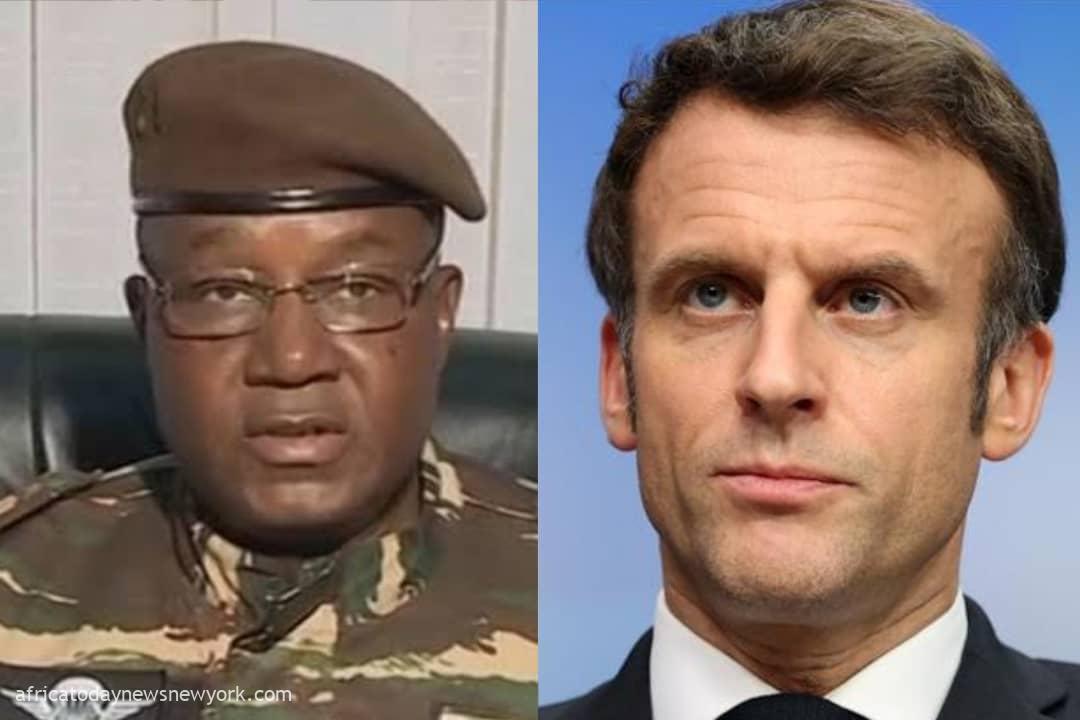Two months after the July coup that overthrew democratically-elected President Mohamed Bazoum in Niger Republic, French President Emmanuel Macron on Sunday revealed that his country has finally resolved to withdraw its ambassador and troops from the West African country.
In a televised interview on Sunday which was monitored by Africa Today News, New York, Macron said; ‘France has decided to withdraw its ambassador. In the next hours our ambassador and several diplomats will return to France’
He added that military cooperation was “over” and that 1,500 French troops stationed in the country would withdraw in “the months and weeks to come” with a full pullout “by the end of the year”.
France’s exit comes after weeks of pressure from the military and popular demonstrations. Thousands of people have protested in recent weeks in the capital Niamey, including outside a military base housing French soldiers.
Read Also: France Ambassador ‘Held Hostage’ In Niger — Macron
Niger’s new rulers, who had been demanding France’s exit after Macron refused to recognise the July 26 coup, welcomed the French president’s announcement.
“This Sunday, we celebrate a new step towards the sovereignty of Niger,” they said in a statement read out on national television. “This is a historic moment, which speaks to the determination and will of the Nigerien people,” they added.
Africa Today News, New York reports that the development is coming even as France’s troops have also been asked to leave its former colonies Mali and Burkina Faso.
The regional bloc the Economic Community of West African States (ECOWAS) imposed sanctions in the wake of the July coup, and warned that it could intervene militarily if diplomatic efforts to return Bazoum to power fail, as a last resort. But ECOWAS dialed back its rhetoric as regional countries threw their weight behind the new military rulers.
The three Sahel countries – Niger, Mali and Burkina Faso, which have all witnessed coups in recent years – formed a mutual defence pact on September 16 against possible threats of armed rebellion or external aggression.
